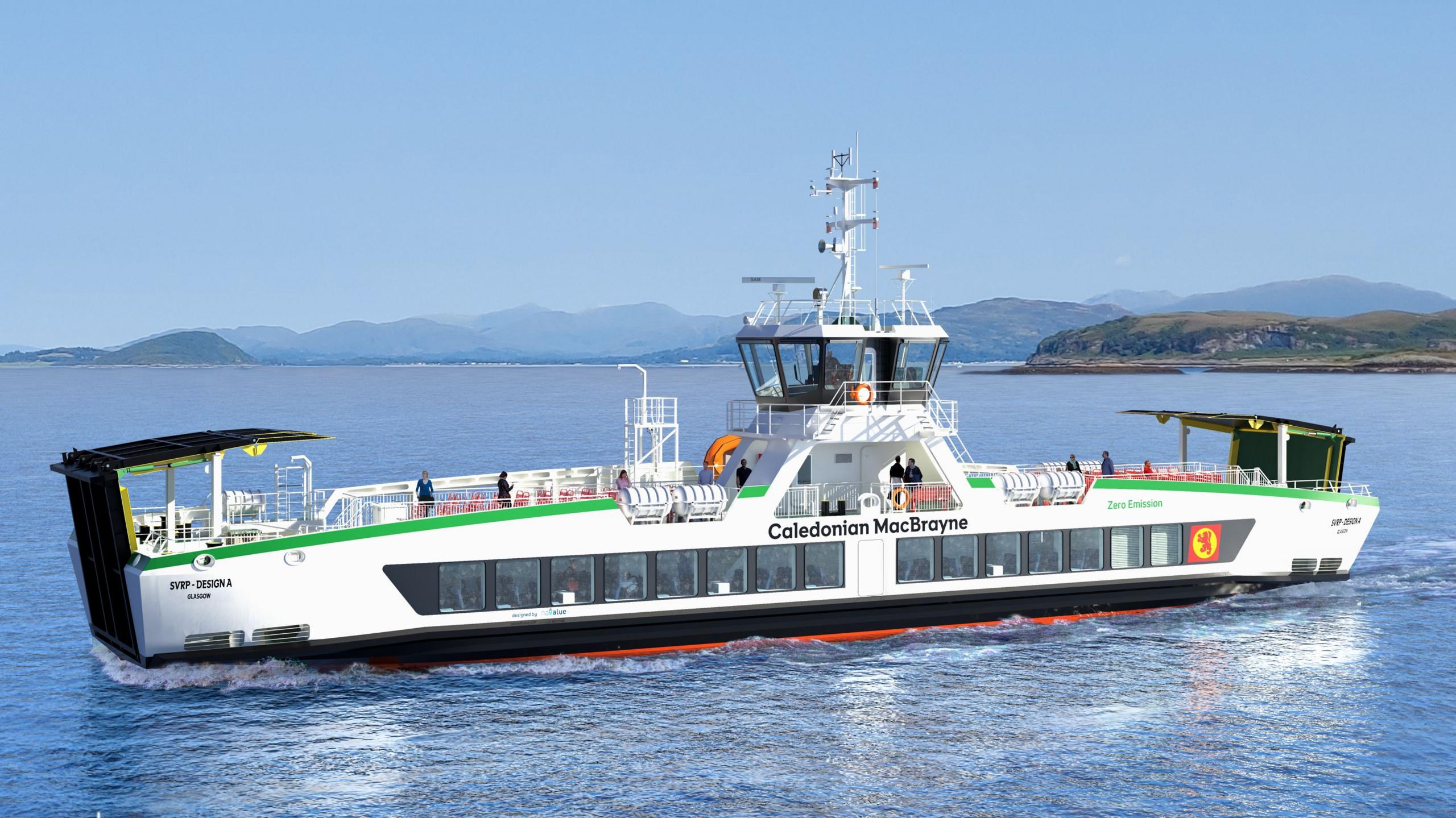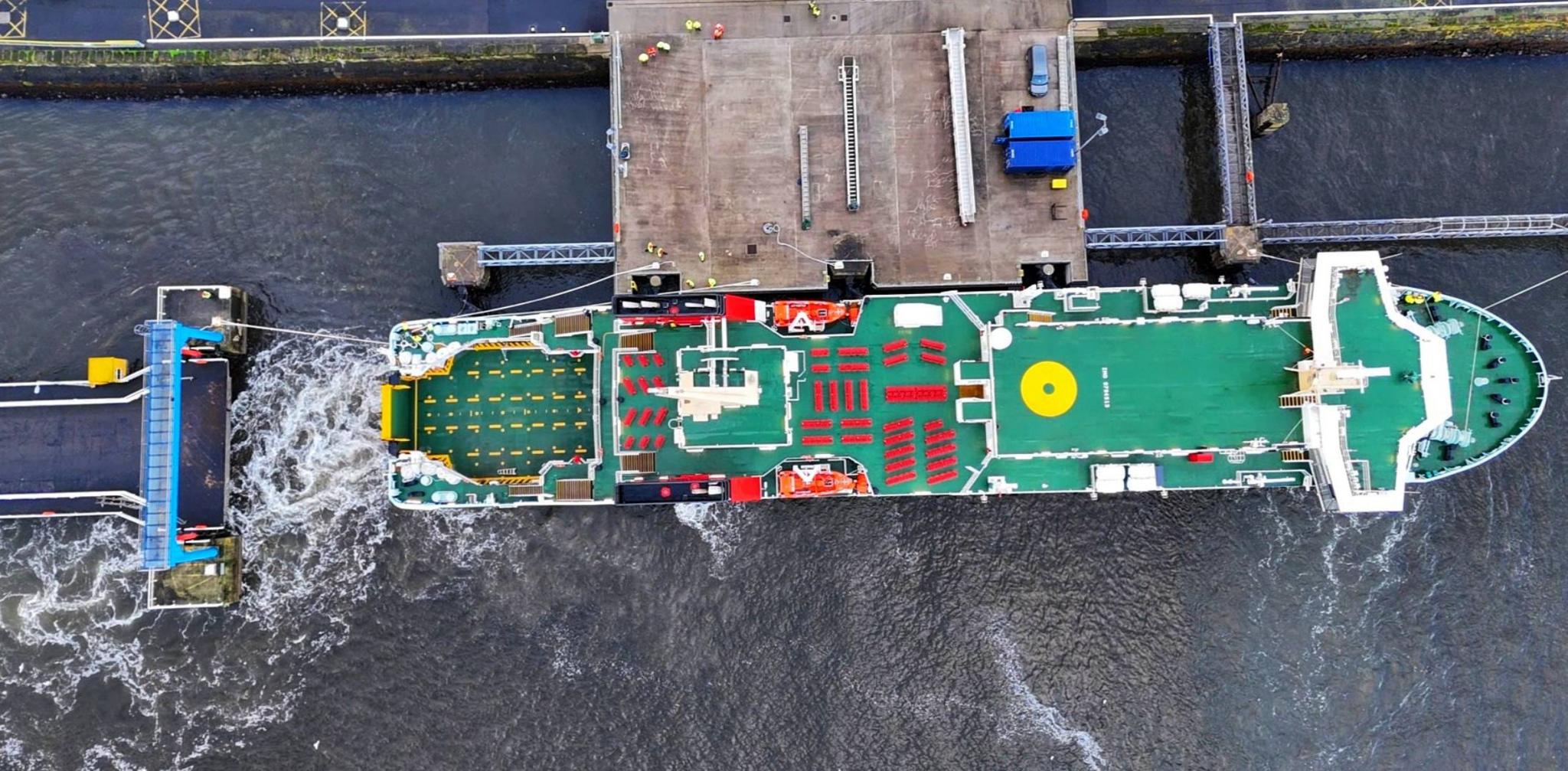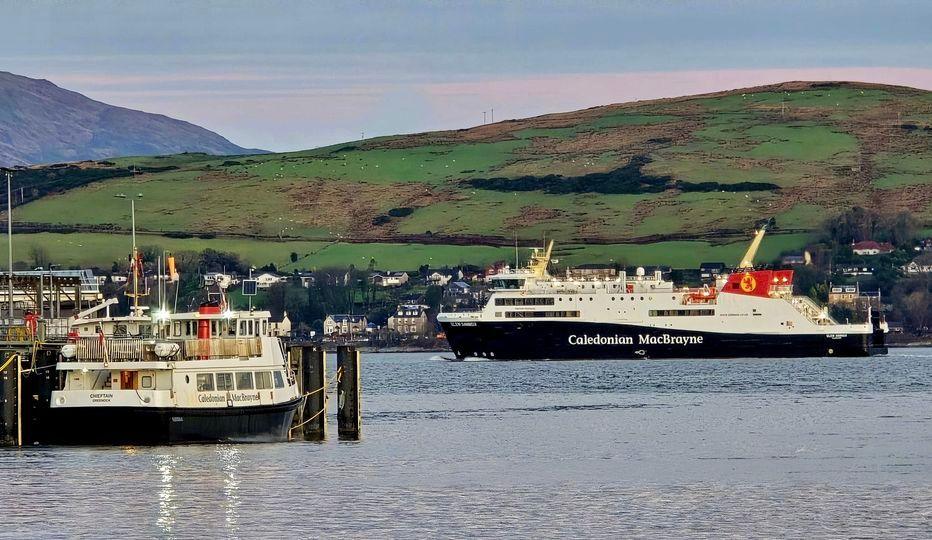Ferguson shipyard's interim boss extends contract
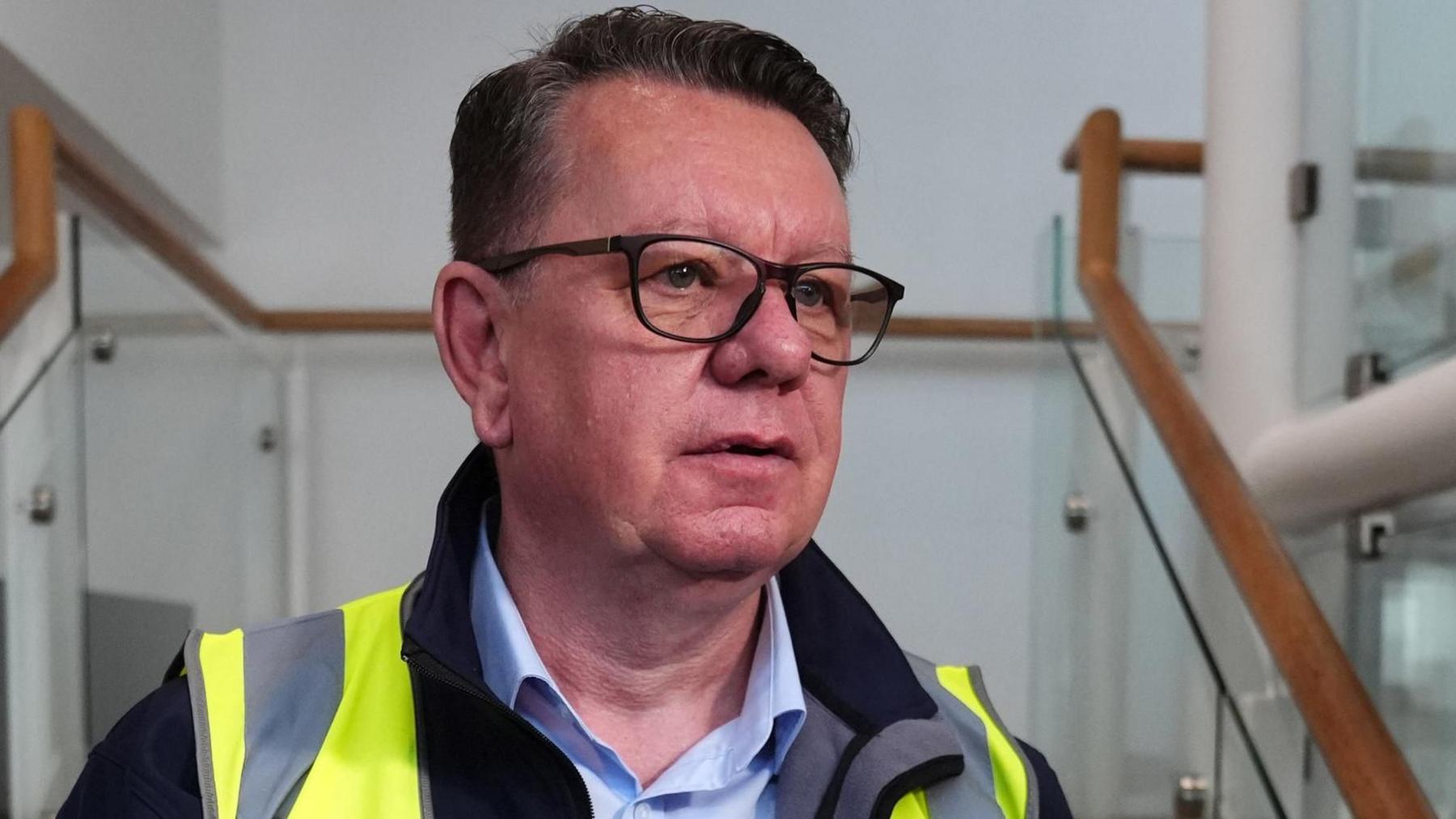
John Petticrew took over as chief executive in March
- Published
The interim boss of the Ferguson Marine shipyard has agreed to stay on until Easter as the firm struggles to recruit a replacement chief executive.
A candidate had been identified but pulled out 10 days ago, MSPs have been told.
The current chief executive, John Petticrew, said he would now extend his contract, and would gladly take on the role permanently were it not for his family commitments in Canada.
The Port Glasgow shipyard has been at the centre of Scotland’s long-running ferries saga but last week it finally delivered Glen Sannox, the first of two LNG ships being built for Caledonian MacBrayne.
The ships have been plagued by design and build problems, ending up four times over budget and six years late.
Mr Petticrew told Holyrood’s net zero energy and transport committee he believed a failure to properly design the ships before starting construction was at the heart of what went wrong.
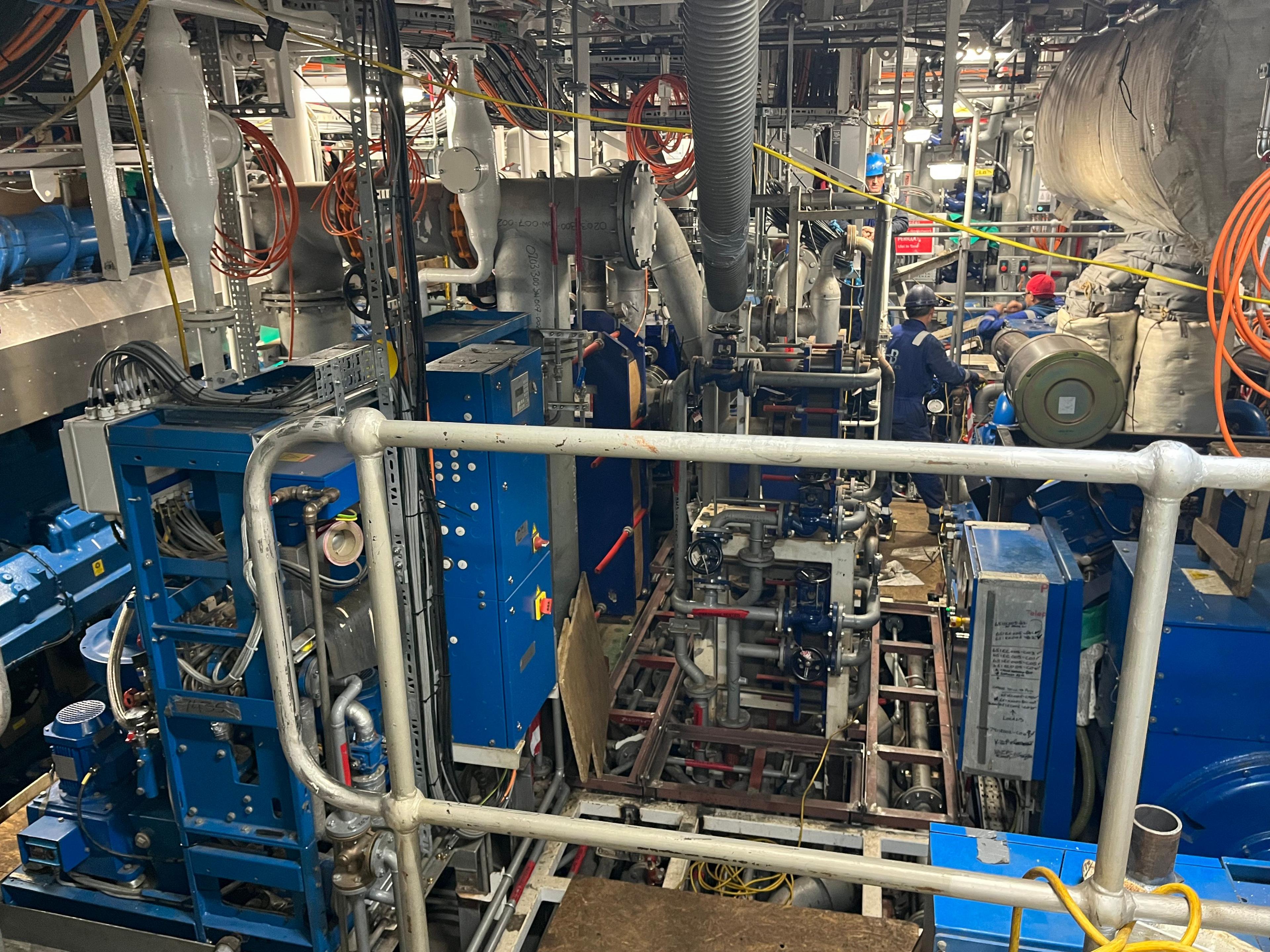
Mr Petticrew said the engine room of Glen Sannox was very congested due to the quantity of LNG equipment
He said the dual-fuel LNG technology was not particularly complex in itself – but fitting it into a ship the size of Glen Sannox had proved very difficult and the engine room was “very congested”.
It was also difficult to get regulatory approval as UK authorities were unfamiliar with dual fuel LNG ships, he added.
Mr Petticrew declined to be drawn on the wisdom of ordering such vessels in the first place.
But he added that the LNG system on Glen Sannox was now "working fabulously" and that he wanted to see it installed on the second CalMac ferry, Glen Rosa.
LNG is a cleaner burning fuel than conventional marine gas oil, though the carbon emission benefits of using LNG are contested, especially for short island crossings of the type the two ferries will be making.
- Image source, Tom Lennon
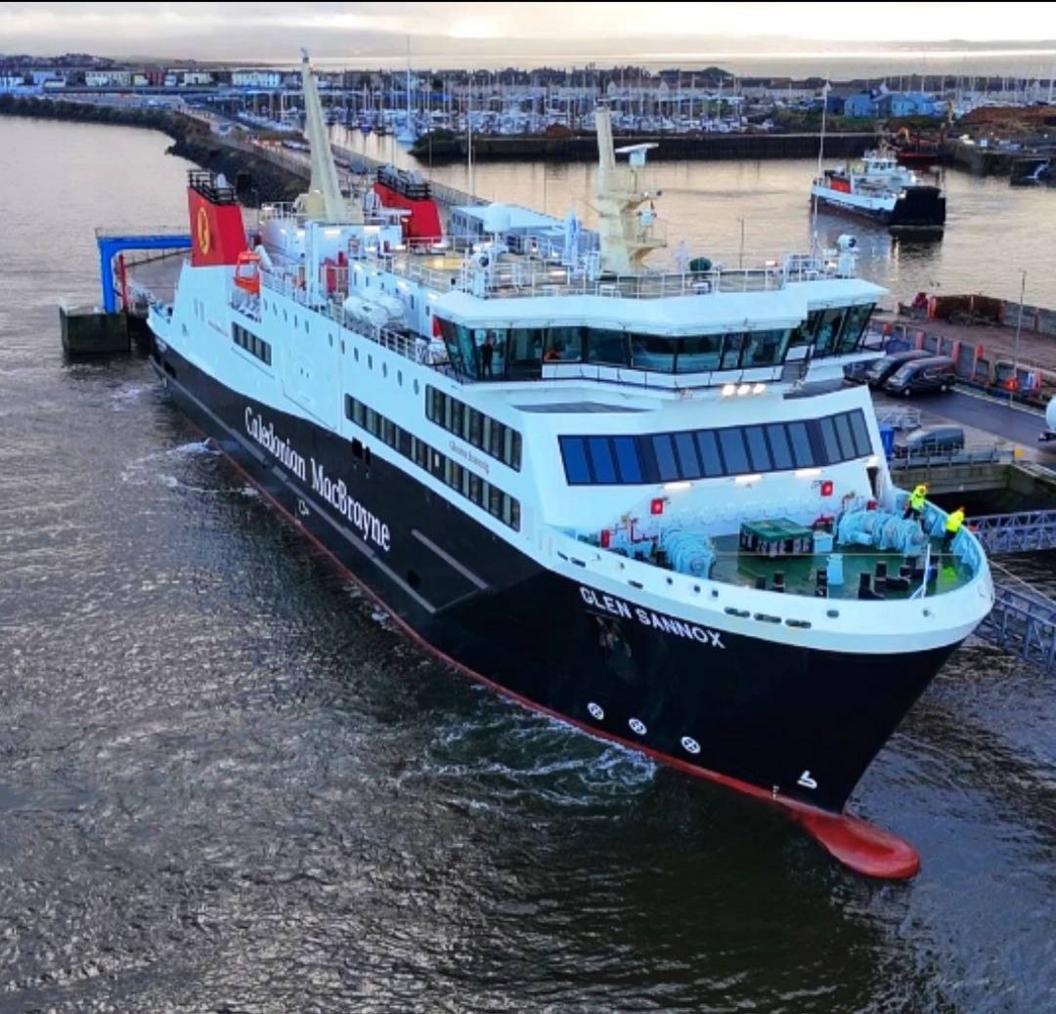
Image caption, Glen Sannox carried out its first berthing trials at Troon on Tuesday
1 of 3
Mr Petticrew took over as chief executive in March after the Ferguson Marine board unexpectedly sacked his predecessor David Tydeman.
Mr Tydeman had been at the shipyard for two years and had won praise for the progress made on both ferries after years of difficulties with design and construction.
But board chairman Andrew Miller said the directors had lost confidence in his ability to predict when Glen Sannox would be delivered, or give accurate information about new problems.
Since then the yard has announced a further four delays, mostly driven by problems installing the LNG systems but also due to a problem with the anchor operation that emerged during acceptance trials, the committee heard.
Mr Miller said the controversy over the ferries and uncertainty about the future of the yard had made it harder to recruit a permanent replacement for Mr Petticrew.
BBC Scotland understand that a senior manager with Harland & Wolff, based in Scotland, had initially accepted the role, but then changed his mind.
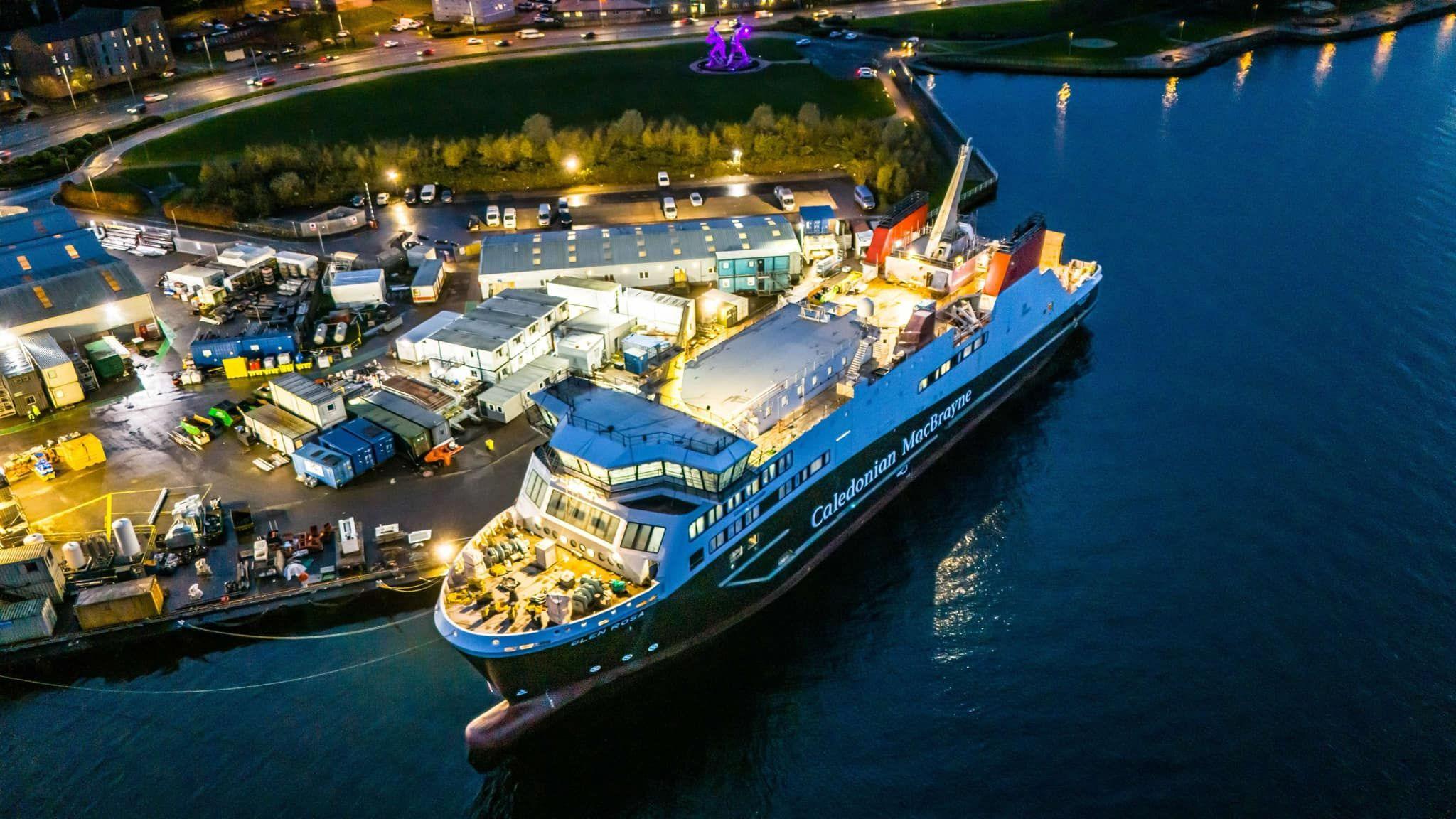
Glen Rosa, pictured at the Ferguson shipyard, is still on track to be delivered next September
Mr Petticrew told the committee that Glen Rosa was still on track to be delivered next September.
He said that while the yard had no new orders, he was confident it would soon secure some sub-contracting work from a larger yard.
This is believed to involve units for the Type 26 frigates being built by BAE Systems at its two shipyards in Glasgow, following a successful trial under his predecessor.
Mr Petticrew said he believed the Ferguson shipyard could have a viable future, but would need to adapt as well as modernise its operations.
The Scottish government has pledged £14m of new investment.
He said some of that money would be used to replace obsolete equipment, although plans to purchase a new "plating line" appear to have been dropped.
He said: "We've got to learn you can't start a vessel until the design's finished, you can't start a vessel without a plan, you can't start two vessels at the same time, you don't bring in all of the equipment all at the one time and make yourself rent another warehouse.
"You do it the way the rest of the world is doing it."
Related topics
- Published13 January
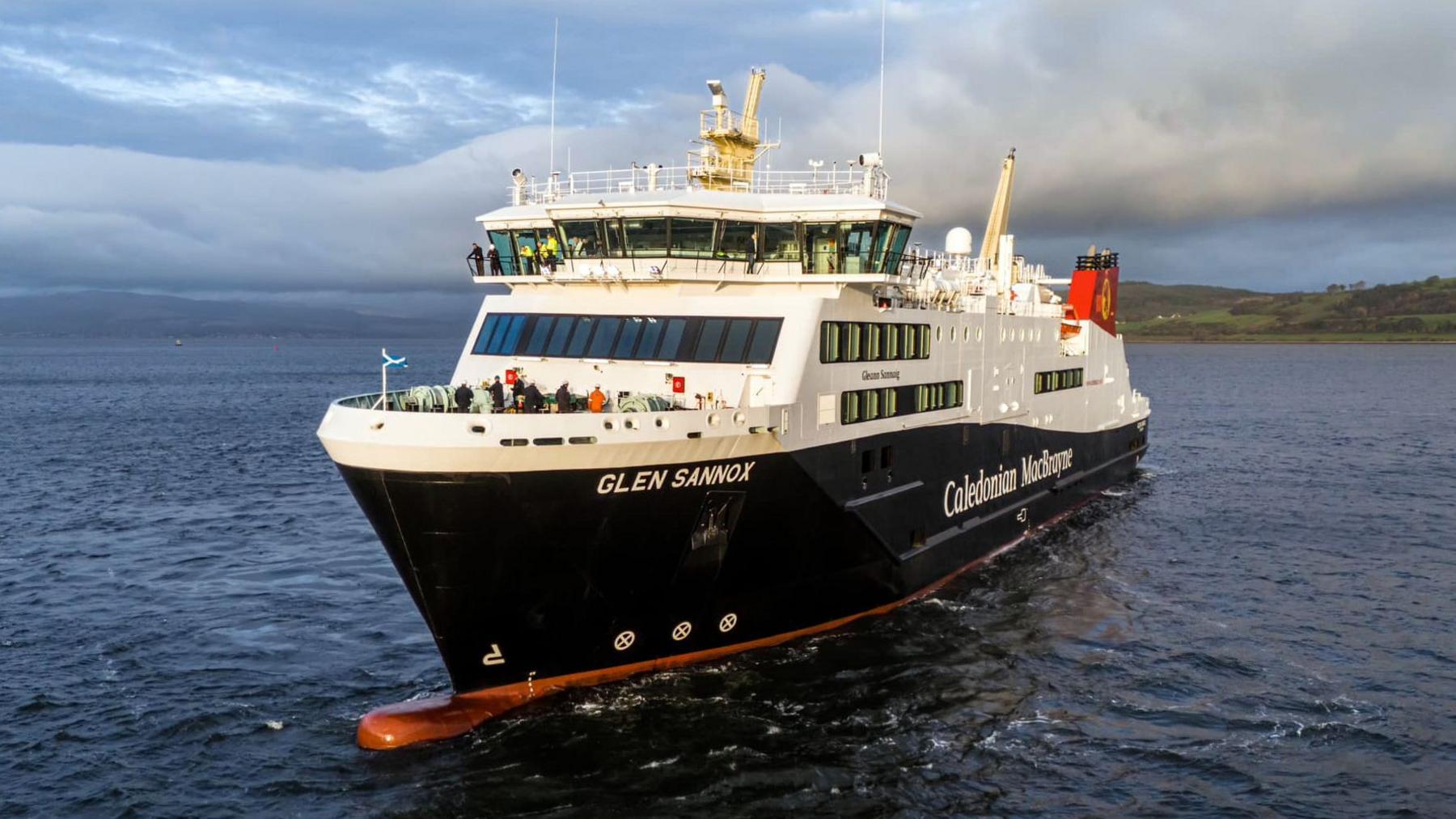
- Published21 November 2024
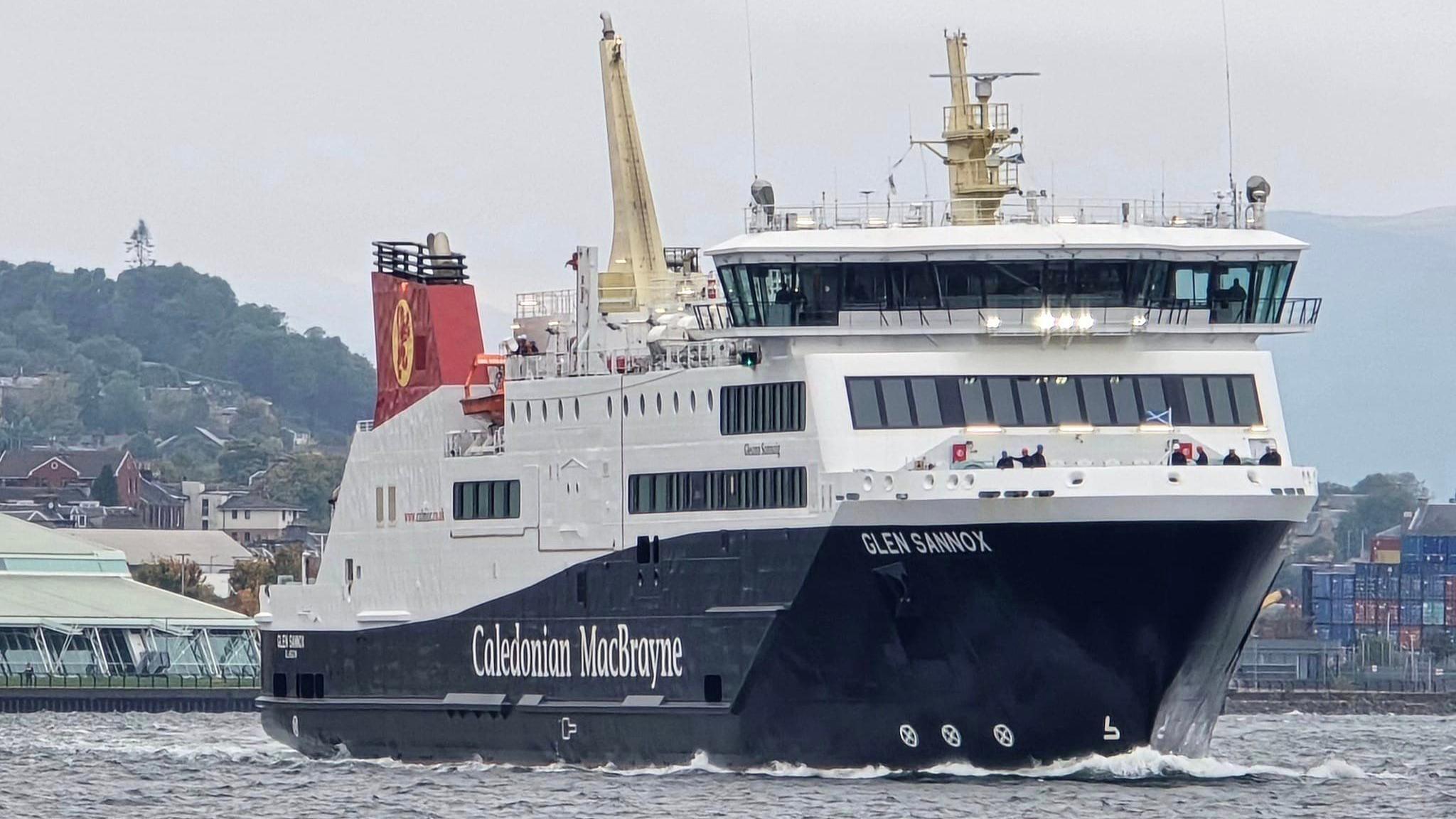
- Published23 October 2024
